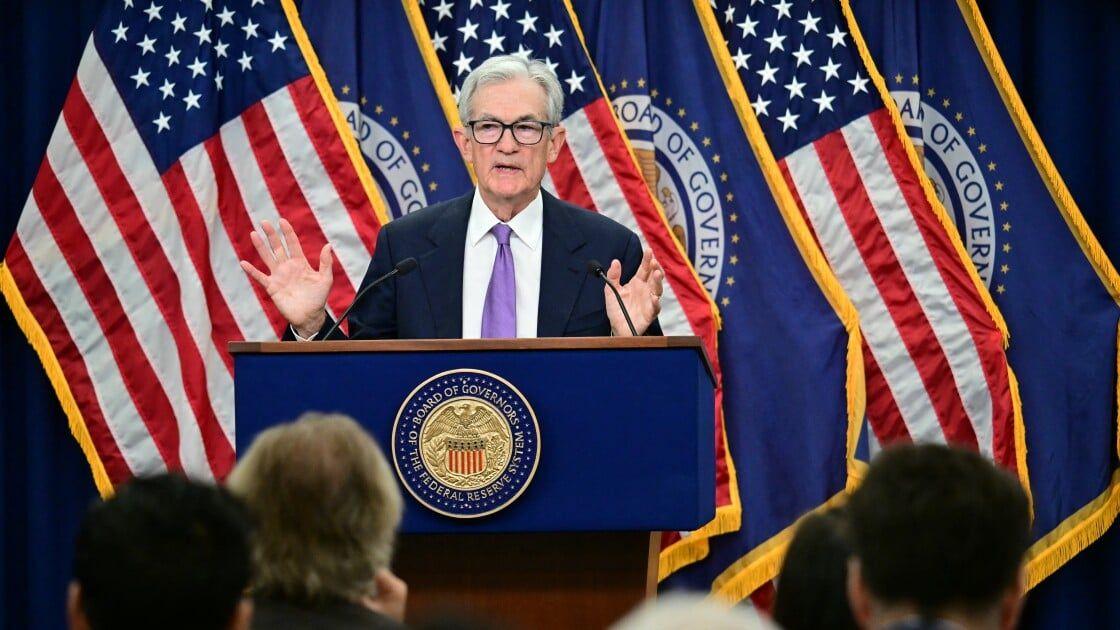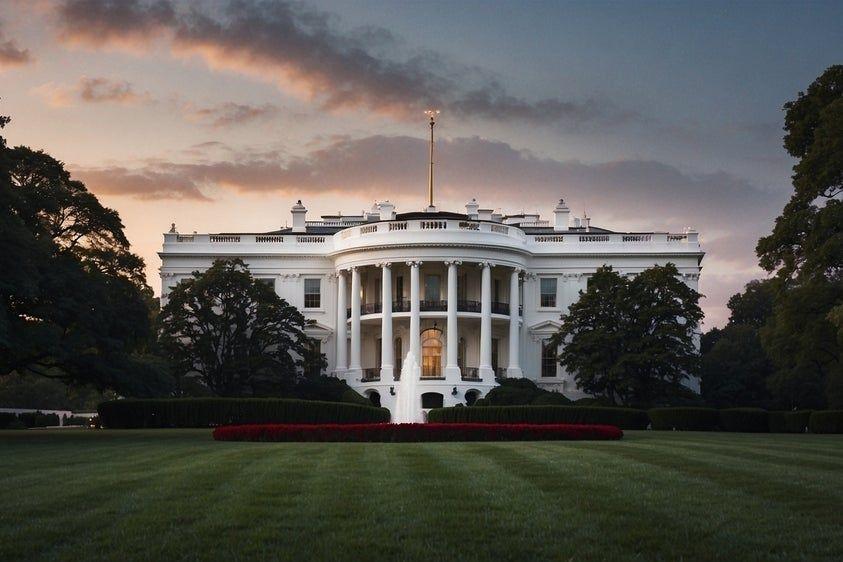San Francisco Fed Chief Discusses AI's Impact on Jobs and Economy
2 Sources
2 Sources
[1]
SF Fed's Daly says inflation pace subsiding; AI productivity impact still uncertain
"Confidence is growing that we are getting nearer a sustainable pace of getting inflation down to 2%," San Francisco Fed President Mary C. Daly said on Monday. The risk to the Federal Reserve's two goals are now better balanced, she added. "We have to keep our eye on both sides of the mandate." "I see a policy adjustment coming over the coming terms... I'm not going to give time-based guidance," she said. "We have a lot more information to get before we can make any real determination," she added. Daly also discussed the expected impact of AI on the U.S. economy. The range of estimates on how much generative AI will boost productivity growth rate is fairly wide, "We can expect AI and generative AI to at least contribute to the average productivity growth rate of our nation, which is about 1.5%," she said. "Now can it do more? Well, that depends on us... If it's simply replacing a task that we already do, that 1.5% productivity growth is probably what it looks like," she said. But if it starts to allow us to create new opportunities, innovate, find ideas more easily because it can take reams of information and make us faster at that, then I think that has real power." More on Interest Rates Chair Powell Fights For Fed Independence In Semi-Annual Monetary Policy Testimony Fed gets added confidence that inflation is cooling in Q2, Fed's Powell says Goldman's Hatzius makes the case for a July Fed rate cut
[2]
SF Fed Reserve Chief Daly says A.I. replaces tasks, not people
The CEO of the San Francisco Federal Reserve bank gave an upbeat view on artificial intelligence's impact on jobs, noting that while businesses are still figuring out how to get the most out of the technology, she saw early indications that AI is helping workers more than harming them. Mary Daly, who oversees a Federal Reserve bank region that includes Silicon Valley among its nine Western states, weighed in on the state of the labor market on Monday at the Fortune Brainstorm Tech conference, but declined to give a hint on when the next rate cut may come. In a wide-ranging on stage interview in Deer Valley, Utah, Daly said that the tech sector is still in the midst of an upward trajectory "because it's bringing us all kinds of new things. It helps us do better business, better at how we live, making the world a better place." The U.S. labor market, which has been tight since 2021, is now softening, Daly said. The U.S. unemployment rate reached 4.1% in June, a two-and-a-half year high, according to the Bureau of Labor Statistics. Firms are looking for ways to meet demand and do things more quickly. She spoke of Honeywell which had a labor shortage and used AI to augment its workforce as opposed to replacing its workers. "They were replacing tasks not people and people were getting oriented to do other things," Daly said to an audience filled with venture capitalists and tech entrepreneurs. "No tech in the history of all technology has reduced employment, not net," she added. The Federal Reserve has also been expected to cut interest rates this year at least once but has yet to do it. Inflation has remained stubborn which has made the Fed leery of cutting rates, according to CBS News. Daly said she expects a "policy adjustment over next coming terms," but wouldn't give a hint on how many rate cuts might come or when. Daly was also questioned on how rate cuts might impact the valuations of booming technology companies like Nvidia. The chip company currently has a market cap of $3.16 trillion. Valuations of tech companies move around in ways that are not always tied to the economy, she said. "How a change in interest rates will affect valuations isn't clear," Daly said. When asked about Donald Trump's anticipated return to the White House, Daly was also circumspect. The Fed is charged by Congress to remain independent even if it is faced with a presidential administration that is hostile, Daly said. The Fed's most important asset is its integrity, while its most important tool is the trust of the people, she said. "The American people are our shareholders. We have to earn their trust and respect by [doing] great work," she said.
Share
Share
Copy Link
Mary Daly, President of the San Francisco Federal Reserve, shares insights on artificial intelligence's potential effects on the job market and economic landscape at Fortune Brainstorm Tech conference.

AI's Potential to Reshape the Job Market
Mary Daly, President of the San Francisco Federal Reserve, recently shared her thoughts on the impact of artificial intelligence (AI) on the job market and economy. Speaking at the Fortune Brainstorm Tech conference, Daly emphasized that while AI has the potential to disrupt certain job sectors, it is also likely to create new opportunities and boost productivity
1
.Balancing Job Displacement and Creation
Daly acknowledged the concerns surrounding job displacement due to AI advancements but maintained an optimistic outlook. She stated that historically, technological innovations have led to the creation of new jobs that were previously unimaginable. The Fed chief expects a similar pattern with AI, suggesting that while some roles may become obsolete, new positions will emerge to support and manage AI systems
2
.AI's Role in Productivity Enhancement
One of the key benefits of AI, according to Daly, is its potential to significantly boost productivity across various sectors. She highlighted that increased productivity could lead to economic growth and improved living standards. However, Daly also emphasized the importance of ensuring that the benefits of AI-driven productivity gains are distributed equitably across society
1
.The Need for Adaptive Policies and Education
Recognizing the rapid pace of AI development, Daly stressed the importance of adaptive policies and education systems. She called for a proactive approach in preparing the workforce for the AI-driven future, emphasizing the need for continuous learning and skill development programs. This, she argued, would help workers transition into new roles created by AI advancements
2
.Related Stories
Economic Implications and Federal Reserve's Role
As a Federal Reserve official, Daly also touched upon the broader economic implications of AI adoption. She suggested that the Fed would need to closely monitor how AI impacts inflation, employment, and overall economic stability. Daly hinted at the possibility of adjusting monetary policies to address any significant economic shifts resulting from widespread AI implementation
1
.Ethical Considerations and Responsible AI Development
While focusing on the economic aspects, Daly also briefly addressed the ethical considerations surrounding AI. She emphasized the importance of developing AI responsibly, with proper safeguards and regulations in place to prevent misuse and ensure that AI systems are designed to benefit society as a whole
2
.References
Summarized by
Navi
[1]
Related Stories
Fed's Mary Daly says AI shows promise but warns it's too early to call it transformative
18 Feb 2026•Business and Economy

Fed Chair Powell Distinguishes AI Boom from Dot-Com Bubble as Tech Giants Pour Trillions into Infrastructure
29 Oct 2025•Business and Economy

Fed's Michael Barr warns AI could leave workers 'essentially unemployable' in 3 scenarios
18 Feb 2026•Policy and Regulation

Recent Highlights
1
ByteDance's Seedance 2.0 AI video generator triggers copyright infringement battle with Hollywood
Policy and Regulation

2
Demis Hassabis predicts AGI in 5-8 years, sees new golden era transforming medicine and science
Technology

3
Nvidia and Meta forge massive chip deal as computing power demands reshape AI infrastructure
Technology





